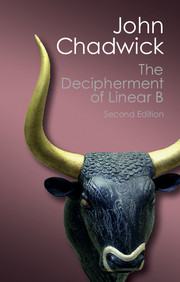3 - HOPES AND FAILURES
Published online by Cambridge University Press: 05 June 2014
Summary
The success of any decipherment depends upon the existence and availability of adequate material. How much is needed depends upon the nature of the problem to be solved, the character of the material, and so forth. Thus a short ‘bilingual’ inscription, giving the same text in two languages, may be used as a crib, and may supply enough clues to enable the rest of the material to be interpreted. Where, as in this case, no bilingual exists, a far larger amount of text is required. Moreover, restrictions may be imposed by the type of text available; for instance, the thousands of Etruscan funerary inscriptions known have permitted us to gain only a very limited knowledge of the language, since the same phrases are repeated over and over again.
There are two methods by which one can proceed. One is by a methodical analysis, and this approach will form the subject of the next chapter; the other is by more or less pure guesswork. Intelligent guessing must of course play some part in the first case; but there is a world of difference between a decipherment founded upon a careful internal analysis and one obtained by trial and error. Even this may produce the correct result; but it needs to be confirmed by application to virgin material, since it can gain no probability from its origin. A cool judgement is also needed to discriminate between what a text is likely or unlikely to contain.
- Type
- Chapter
- Information
- The Decipherment of Linear B , pp. 26 - 39Publisher: Cambridge University PressPrint publication year: 2014

